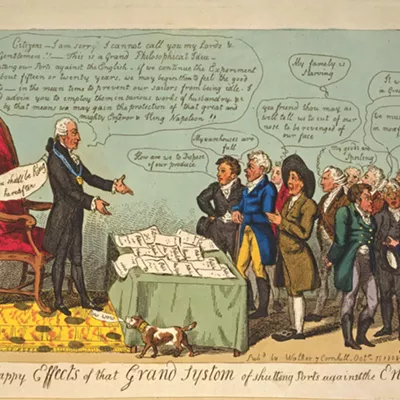The funny thing about our society is that we expect people in poverty to pull themselves up by their bootstraps. I've always laughed at that saying, because most people in poverty can't afford a pair of boots. Too many of us villainize people who are poor and blame them for their circumstances, which they most likely have been born to, just as their parents were.
Intergenerational poverty is a thing, because the system is rigged for a select few to be successful and the rest to stay status quo. There will be no upward mobility until we figure out a systemic, root-focused solution. We do not have a very stable economy either, because when the majority of an economy's consumers become too poor to buy their country's products, we risk an economic collapse.
Think of it this way: Northwest tribes shared their familial and tribal connection and story with the world through totem poles. There is confusion about them, though: People believe that the top of the totem pole is the most important part, when in fact the strongest and most important part is at the base. If the top of the totem pole is chopped off, the rest of it can still stand strong. But if the bottom of the totem pole is chopped off, then the whole totem will fall. If the top 1 or 2 percent were to be removed from our economic system, our economy would not collapse. But when the base of the economy can't afford basic necessities, an economic fall is inevitable.
I think of people in poverty as the strongest, most resilient members of our community. They are able to navigate systems that intentionally make it hard for them to succeed; they take on jobs that no one else wants; they are humble, but have hope for their future even when they are told they will never be good enough. I have seen all my life the innovation and intelligence it takes to make it in America with no money, no savings, no "earning potential."
I always laugh when some "taxpayers" complain about poor people owning smartphones but having to go to the food bank to make it through the month. Did you know that it's harder than ever to know where to receive benefits, apply for jobs and communicate with potential employers without email and without access to the internet? It's a no-brainer that people in poverty need access to the internet that so many of us take for granted.
Here's the thing: people in poverty can't afford a desktop computer and premium internet service. Instead, they get a smartphone that is usually subsidized through a contract with a phone carrier. Some sneer at them for having a smartphone, but to me it seems the smartest and least expensive way to stay connected and potentially get a job that pays well enough to get off welfare or other services. Maybe we shouldn't be so judgmental; maybe we should see their determination to make it in a world intent on leaving them behind.
It would behoove many to know that poor people know they are as important to society as the top earners in our community. They know that as the bottom of the totem pole, they are essential to the success of those at the top of the totem. They also know that in order to keep lifting up the top of the totem, we have to lift up equally those closest to the Earth. ♦
Tara Dowd, an enrolled Inupiaq Eskimo, was born into poverty and now owns a diversity consulting business. She is an advocate for systemic equity and sees justice as a force that makes communities better.





















